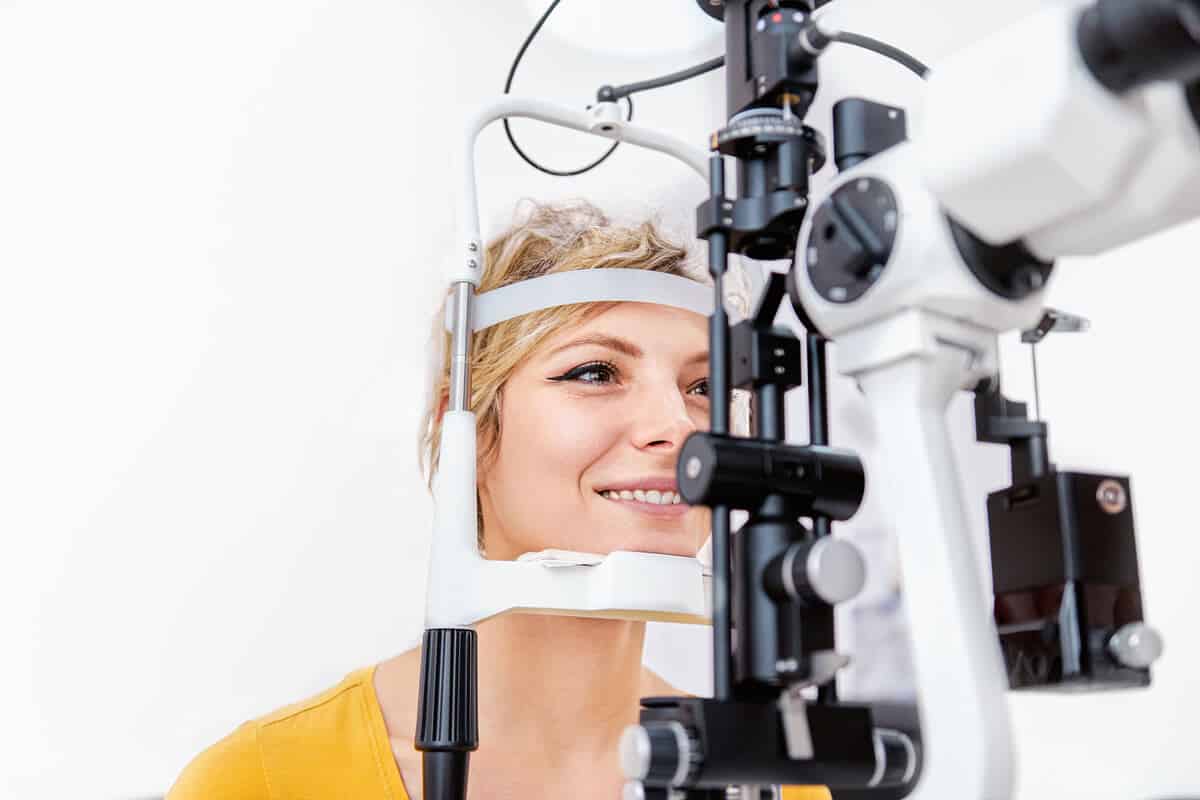How Common Is Glaucoma? Understanding Key Factors
Glaucoma is a disease that can cause sight loss. People call it the “silent thief of sight” because it can happen without you noticing until it’s too late. Many people have glaucoma, but they don’t even know it. This article will answer the question, “How common is glaucoma?” its causes and how to protect your eyes.
What Is Glaucoma?
Glaucoma is a disease that hurts the optic nerve in your eye. This nerve helps you see, and when damaged, it can cause you to lose sight. Glaucoma happens when the pressure in your eye gets too high, which causes optic nerve damage. But not everyone with glaucoma has high eye pressure. Some people can have normal eye pressure and still get glaucoma.
Symptoms Of Glaucoma
Glaucoma often has no symptoms at first. You might not notice anything until it’s already affecting your vision. Some signs to watch for include:
- Blurred vision
- Losing your side vision (you may not notice until it’s too late)
- Blind spots in your vision
- Severe eye pain (for acute forms)
- Red eyes
- Nausea or vomiting (in serious cases)
If you have severe eye pain or other symptoms, seeing a doctor immediately is important.
How Common Is Glaucoma?
Glaucoma is more common than you might think. The older you get, the more likely you are to get glaucoma. In Australia, around 300,000 people have glaucoma. But many people don’t know they have it because it can happen over time.
Why Is Glaucoma So Common?
Glaucoma is common because many things can cause it. The main cause is high pressure in the eye. But even if you have normal eye pressure, you can still get glaucoma. This is why it’s important to communicate with your eye doctor.
Who Is At Risk For Glaucoma?
Some people are more likely to get glaucoma. Certain things can make you more likely to have glaucoma. Here are some of the risk factors:
- Age: If you are over 40, you may be more likely to get glaucoma. It’s important to get your eyes checked as you get older.
- Family History: If someone in your family had glaucoma, you might get it, too. Be sure to tell your eye doctor if your family has glaucoma.
- Ethnicity: If you’re from an African background, you may be more likely to get glaucoma.
- High Eye Pressure: If your eye pressure is high, you have a higher chance of getting glaucoma. Your doctor will check your eye pressure during your exam.
- Other Health Problems: If you have diabetes or high blood pressure, you may be more likely to get glaucoma. It’s important to tell your doctor about any health problems you have.
- Eye Injuries: If you’ve had an injury to your eye, you might get glaucoma later. If you’ve hurt your eye before, let your eye doctor know.
Types Of Glaucoma
There are different types of glaucoma. Each type affects your eyes in different ways. Here are the most common types:
Primary Open-Angle Glaucoma
This is a common type of glaucoma. It’s a gradual process that may not hurt. Over time, it can make it harder to see things out of the corners of your eyes.
It does not affect your central vision right away, and many people don’t notice it until the damage is already done. That’s why it is very important to have your eyes checked.
Angle-Closure Glaucoma
This type of glaucoma happens right away. It can cause huge eye pain, blurred vision, and headaches. Angle-closure glaucoma is a medical emergency.
If you feel these symptoms, you must immediately see a doctor. If not treated, it can damage your eyes.
Normal-Tension Glaucoma
Normal-tension glaucoma happens even when the eye pressure is normal. Doctors think it might be because of improper blood flow to the optic nerve. This can damage the nerve and affect vision.
Congenital Glaucoma
Congenital glaucoma happens in babies. It is rare, but some babies are born with it.
Cloudy eyes, tearing, or sensitivity to light are signs to look for. It is important to catch these early so doctors can help protect the baby’s eyes.
Secondary Glaucoma
Secondary glaucoma happens when other things cause it. For example, an eye injury or infection can cause glaucoma.
It can also happen if you have another health problem, like diabetes or high blood pressure. That’s why it is important to check your eyes to ensure everything is okay.
How Is Glaucoma Diagnosed?
If you are at risk, getting your eyes checked is important. Your eye doctor can do a test to see if you have glaucoma. The test might include:
- Eye Pressure Test: To see if the pressure in your eyes is too high.
- Visual Field Test: To identify vision loss, such as peripheral vision.
- Eye Exam: To see the health of your optic nerve.
Why Early Diagnosis Is Important
Finding glaucoma early is the key to stopping vision loss. If you get treatment early, you can keep your sight for a long time.
Is There A Glaucoma Treatment?
There is no ultimate cure, but there are ways to help you keep your vision. The main goal is to lower the pressure in your eyes. Here are the most common treatments:
- Prescription Eye Drops: Eye drops are a common treatment for glaucoma. They help lower the pressure in the eyes.
- Laser Treatment: If eye drops don’t work, your doctor might use a laser to help your eyes drain the fluid better.
- Surgery: In some cases, surgery may improve the drainage in your eyes and lower the pressure.
How To Protect Your Eyes From Glaucoma
Even though you can’t always prevent glaucoma, there are some things you can do to protect your eyes:
- Get regular eye exams, especially if you are at risk.
- If someone in your family has had glaucoma, tell your doctor.
- Use any medications your doctor gives you to lower eye pressure.
- Wear safety glasses to avoid injuries.
Frequently Asked Questions
Can I drive if I have glaucoma?
It depends on how much glaucoma has affected your vision. You can drive if you have good vision and your doctor says it’s okay. But if glaucoma causes vision problems, you may need to make changes or stop driving.
Can I live a normal life with glaucoma?
Yes, with proper treatment and regular eye exams, you can live a normal life with glaucoma. It is important to follow your doctor’s advice to manage the condition and protect your vision.
Can I prevent glaucoma?
You can’t prevent glaucoma, but you can catch it early. Regular eye exams are the best way to find glaucoma before it causes permanent vision loss.
What happens if glaucoma is not treated?
If glaucoma is not treated, it can cause permanent vision loss or blindness. That’s why it’s important to see your eye doctor and follow their advice to manage the condition.
Can exercise help with glaucoma?
Exercise can help lower eye pressure in some people, which may help with glaucoma. Talk to your eye doctor about safe exercises for you.
Can diet affect glaucoma?
Eating a balanced diet can support eye health, but diet alone doesn’t prevent glaucoma. Foods rich in antioxidants, like fruits and vegetables, may be helpful. Ask your doctor about foods that can support your vision.
Final Thoughts
 Glaucoma is a common eye disease that can cause you to lose sight. But if you get treated early, you can keep your vision. It’s important to check your eyes, especially if you are at risk. If you diagnose glaucoma early, you can manage it and live a happy life.
Glaucoma is a common eye disease that can cause you to lose sight. But if you get treated early, you can keep your vision. It’s important to check your eyes, especially if you are at risk. If you diagnose glaucoma early, you can manage it and live a happy life.
If you are over 40 or have a family history of glaucoma, it’s important to get your eyes checked. Regular eye exams can help catch glaucoma early and protect your vision. Call Mornington Peninsula Eye Clinic today at (03) 9070 3580 to book an appointment! We’re located in Melbourne and happy to help.
Note: Any surgical or invasive procedure carries risks. Before proceeding, you should seek a second opinion from an appropriately qualified health practitioner.
Sources:
Boyd K 2024. What Is Glaucoma? Symptoms, Causes, Diagnosis, Treatment Goyal A, editor. American Academy of Ophthalmology. Available at: https://www.aao.org/eye-health/diseases/what-is-glaucoma [Accessed November 11, 2024]
Glaucoma Australia. Risk Factors for Glaucoma. Glaucoma Australia. Available at: https://glaucoma.org.au/what-is-glaucoma/risk-factors-for-glaucoma [Accessed November 11, 2024]
Healthdirect Australia 2022. Glaucoma. Healthdirect. Available at: https://www.healthdirect.gov.au/glaucoma [Accessed November 11, 2024]
Moore W 2022. What Is Open-Angle Glaucoma? WebMD. Available at: https://www.webmd.com/eye-health/eye-open-angle-glaucoma [Accessed November 11, 2024]
NHS 2021. Glaucoma Treatment. NHS. Available at: https://www.nhs.uk/conditions/glaucoma/treatments/ [Accessed November 11, 2024]






Leave a Reply
Want to join the discussion?Feel free to contribute!